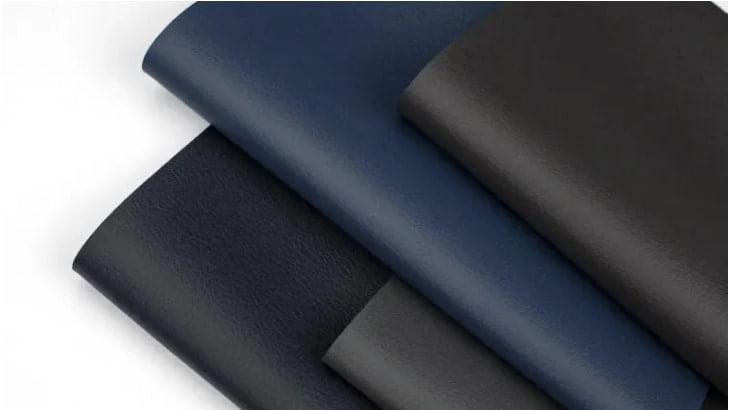Recently, Tesla leather supplier Ultrafabrics and its partner Tapis introduced AV Bio bio-based performance fabrics that set a new standard for sustainability without compromising performance or comfort. Incorporating renewable plant materials into its multi-layer structures, replacing some of the polyurethane materials to reduce reliance on finite resources, AV Bio aims to support airlines in achieving their sustainability goals by providing advanced seating materials that contribute to reduced fuel consumption, lower CO2 emissions and overall economic efficiency. AV Bio uses Tencel modal fiber from certified sustainable forests, Susterra propylene glycol, and bio-based resins from U.S. industrial corn to promote regenerative agriculture and renewable raw materials without competing with the food supply or agricultural land. Also uses Repreve recycled polyester and sustainable Ecovero rayon fiber in its backcloth.
AV Bio technology can be customized and integrated into seating lines and vertical surfaces, said Tapis: Ultrafabrics' patented technology allows for the seamless integration of sustainable materials into every layer of a product, providing airlines with lightweight solutions that support their sustainability initiatives.

Ultrafabrics' Aerospace AV Bio Technology
What biobased materials is Ultrafabrics introducing?May 2021 Ultrafabrics plans to introduce biobased ingredients into 50 percent of its new products by 2025 and to biobase 100 percent of its new products by 2030. In December 2021, Ultrafabrics launched Volar Bio bio-based animal skin alternatives, which are made from 29% plant-based materials using wood pulp and corn by-products as the primary raw materials, in addition to releasing Volar Bio in six new colors to further diversify its bio-based product selection. Which big brands are starting to use bio-based materials?
1. Cadillac has partnered with MycoWorks, a mycelial materials company, to develop new bio-based leather materials;
2. Lululemon invests in sustainable materials producer Genomatica, collaborating on the first T-shirt made from plant-based nylon;
3. Nike has launched a new collection, Nike Forward, which consists of 70% recycled content and also reduces carbon emissions by 75%;
4. ZARA launched a capsule collection made of Circulose material, made from 100% textile waste and biodegradable;
5. Pangaia introduces a line of plant-based athletic apparel, Activewear 3.0 products made with 99.99% plant-based EVO® nylon and 30% plant-based creora® spandex fibers;
6. The North Face launched jackets made of Protein™️ fiber brewed with structural protein materials;
7. Arc'teryx introduces its first self-developed line of mountain hiking shoes, featuring a sock liner made from a 50 percent bio-based PU compound and an open-cell foam top layer with 25 percent bio-based content;
8. Saucony introduces the TRIUMPH RFG, an eco-friendly running shoe with a natural plant-dyed cotton upper, a midsole made from 55% corn-based materials and an outsole made from 80% natural rubber.

